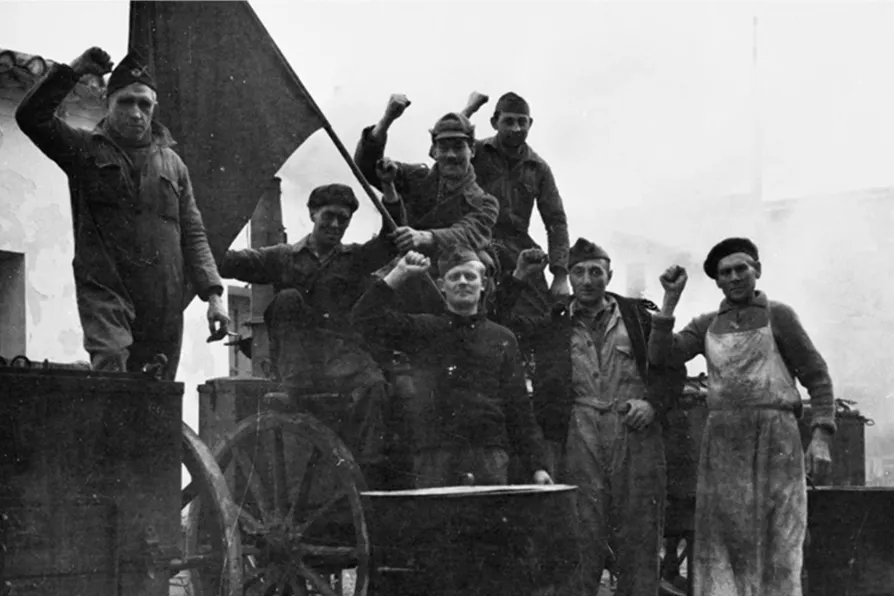The US-Israeli strikes against Iran are part of a decades-long war against the Islamic Republic which has refused to bow to US demands that it surrender its sovereignty, argues VIJAY PRASHAD

 RED SOLIDARITY: Members of the International Brigade in the British cookhouse at Albacete, December 1936
RED SOLIDARITY: Members of the International Brigade in the British cookhouse at Albacete, December 1936
ON October 28 1938, as 300,000 Spaniards crowded the streets of Barcelona to bid farewell to the International Brigade, Major Sam Wild watched from a balcony as George Fletcher led the English-speaking XV Brigade in the farewell parade.
The 57th (British) Battalion marched at the front, followed by the 58th (Lincoln) Battalion, the 59th (Spanish) Battalion and then the 60th (Mackenzie-Papineau) Battalion took up the rear as they were the last battalion to be formed.
The men marched on a carpet of flowers under a shower of paper strips, and women rushed from the crowds lining the route to hug and kiss the marching men. Dolores Ibarruri (La Pasionaria) addressed the International Brigade volunteers, saying: “We shall not forget you; and, when the olive tree of peace is in flower, entwined with the victory laurels of the Republic of Spain — return!”

TONY FOX reports from a commemoration of the legendary Battle of Jarama in which four Stockton-on-Tees volunteers fell

CJ ATKINS commemorates one of the most dramatic moments in working-class history

TONY FOX invites readers to come and hear the story of the remarkable Liverpudlian International Brigader Alexander Foote

The annual commemoration of anti-fascist volunteers who fought fascism in Spain now includes a key contribution from Italian comrades










